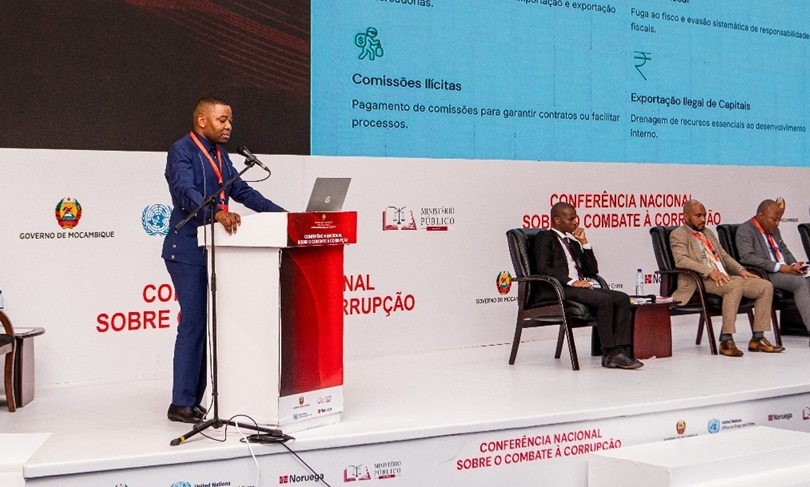Mozambique: Electronic money institution profits leap over 40% to €31.9M
Mozambique: CTA proposes additional measures to combat corruption

Photo: CTA
Mozambique’s Confederation of Economic Associations (CTA) has participated in the National Conference on Combating Corruption, and proposed a set of additional measures to address this challenge – a scourge that it says undermines trust, discourages investment, distorts competition and compromises sustainable development.
Speaking on the panel discussing “Corruption in the Private Sector”, CTA Vice-President Onório Manuel highlighted four measures:
- Effective accountability for all involved in acts of corruption — both public and private — with exemplary punishments, in strict compliance with the law;
- Strengthening the Central Office for Combating Corruption, ensuring technical and human resources for effective, swift, and transparent action;
- Education and awareness-raising in society about the economic and social impacts of corruption, promoting a culture of ethics and integrity from the grassroots; and
- Full digitisation of state-private sector interactions through the effective implementation of e-Government platforms, ensuring transparency in contract awards, real-time monitoring of contract execution, digital issuance and payment of invoices, automated integration between billing and tax collection, and swift, impartial resolution of disputes through auditable digital platforms.
“The private sector is ready to be an active part of the solution. With political will, coordinated action, and institutional commitment, it is possible to create a transparent, predictable, and competitive business environment that places Mozambique on the path to growth and shared prosperity,” Manuel stressed.
Key constraints
One of the main constraints reported by companies is the way payments owed by the state to suppliers of goods and services are handled. Businesspeople report the recurrent requirement of “facilitation fees” – sometimes up to 10% of the invoice value – as a condition of accelerating payment. This practice, besides being illegal, compromises company liquidity and unjustifiably increases operational costs.
To worsen the situation, many companies are forced to issue invoices and pay taxes such as VAT before receiving the payments due from the state. This double pressure on cash flow is particularly damaging for micro, small, and medium-sized enterprises, which often operate on thin margins and depend on constant liquidity.
Additionally, corruption distorts the principle of fair competition. Companies with political connections or the capacity to pay facilitation fees have an advantage in accessing public contracts, while ethical and innovative companies face exclusion and disincentives. This unequal environment deters new investment, limits innovation and undermines the development of the private sector.
Contract dispute resolution is another critical issue. Many processes are manipulated or delayed, increasing uncertainty and hindering long-term planning and the attraction of foreign investment, particularly in the construction, energy and infrastructure sectors.
CTA involvement
Concerned about alarming levels of corruption and aware of its impact on the national economy, the CTA has adopted a proactive stance in combating corruption. In this context, it signed a memorandum of understanding with the Central Office for Combating Corruption establishing a platform for institutional collaboration to prevent and mitigate corruption in public–private sector relations.
Within this collaboration framework, the CTA has actively participated in the development of crucial legislative instruments, such as the Law on the Prevention and Combating of Money Laundering and Terrorism Financing and the revision of the Exchange Law, which promotes greater transparency and predictability in international financial and commercial operations, contributing to the reduction of opportunities for illicit practices.












Leave a Reply
Be the First to Comment!
You must be logged in to post a comment.
You must be logged in to post a comment.